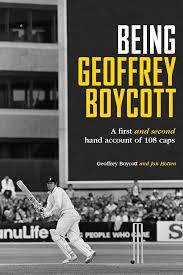The Life and Legacy of Geoffrey Boycott

Introduction
Geoffrey Boycott is a name synonymous with English cricket. His remarkable playing career, which spanned from the 1960s to the 1980s, garnered him respect and recognition as one of the sport’s greatest batsmen. With his distinctive style and strong personality, he has remained a central figure in cricket long after his retirement, serving as a commentator and analyst. Boycott’s story is not just about runs and averages; it is also about resilience, dedication, and his controversial stances both on and off the pitch.
Career Overview
Born in 1940 in Fitzwilliam, Yorkshire, Geoffrey Boycott made his first-class debut at 16. He played for Yorkshire County Cricket Club, where his hard work paid off. He made his Test debut for England in 1964 against Australia, quickly establishing himself as a key player. Over his 108 Test matches, Boycott scored 8,114 runs at an average of 47.72, making him one of the leading run-scorers of his era.
Known for his technique and concentration, Boycott’s style of play often drew criticism for its perceived lack of flair. Nevertheless, he adapted to the evolving game, contributing significantly in various formats, including One Day Internationals, which were emerging at the end of his career.
Controversies and Challenges
Boycott’s career was not without its controversies. His outspoken nature often landed him in hot water, both with cricket administrators and fans. His criticisms of fellow players and the game’s governance sometimes overshadowed his achievements on the field. The most significant episode was his conviction in 1998 for assaulting his then-girlfriend, which caused a considerable backlash and impacted his public image.
Post-Retirement Career
After retiring from cricket, Boycott transitioned into a successful broadcasting career. His insights and unique commentary style made him a familiar voice during cricket coverage, particularly on the BBC. He has remained a pundit, offering his views on modern cricket trends and players, often challenging traditional perspectives with his bold analyses.
Conclusion
Geoffrey Boycott’s legacy in English cricket is multifaceted, blending remarkable achievements with significant personal challenges. His journey reflects the complexities of sports personalities, where skills and public image can coexist in tension. As cricket evolves, Boycott’s contributions are respected and scrutinised, revealing a life dedicated to the sport. His continued presence in the media ensures that his thoughts and approaches will remain part of cricket discussions for years to come.









